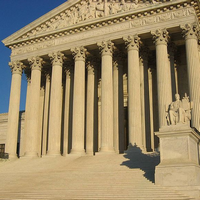Will President Barack Obama's nominee to the Supreme Court alter American foreign policy? It's a question not many have bothered asking. Instead, the lion's share of speculation about Obama's pick has focused on the wealth of women candidates available and the hot-button domestic issues -- like abortion, gay marriage and gun rights -- likely to face the court in coming years. Obama himself explained early on that he is less interested in a candidate's devotion to abstract legal theories and more in a justice who thinks about "[h]ow our laws affect the daily realities of people's lives." Finally, the Supreme Court interprets the Constitution, a document exclusively -- and some argue exceptionally -- applicable to the United States. Whoever Obama nominates, it seems, their influence on American foreign policy will be nil. Actually, no. The U.S. Supreme Court is far more international in its makeup and conduct than many think. Throughout its history, foreign law has played a role in the court's decisions. During the more than three decades -- from 1801 to 1835 -- that John Marshall headed the nation's highest bench, international disputes repeatedly required references to the law of other countries. More recently, liaisons between the Supreme Court and foreign judges, as well as the explicit invocation of international law, has increasingly emerged as a norm.
Under the Influence: An Internationalist Supreme Court Nominee?

